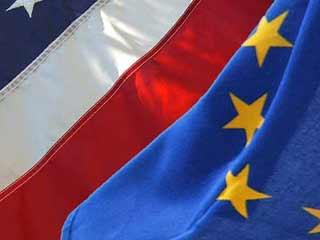Sagging stock prices and a falling euro are warning signs.
How could tiny Greece (population 11 million, with an economy one-fortieth that of the United States) trigger such a dreadful chain reaction? Simple.
Suppose Greece had defaulted on its government bonds. That might have caused a flight from the bonds of Spain, Portugal and other European countries with high budget deficits or debt. European bank cross-border holdings of Greek, Portuguese, Irish and Spanish bonds total about $250 billion, estimates the Institute of International Finance, an industry research group. With mounting losses, banks would have trouble raising funds for routine business. Their stocks would drop.
Once bond and stock markets began to sell off, who knows what would happen? Panics thrive on fear and ignorance. After Lehman's failure, investors rushed to the safety of cash and U.S. Treasury securities. Markets plunged, lending fell, optimism collapsed and the economy sank.
America's interest lies in preventing a repetition. We ought to support Europe's rescue package. Europe's problems don't belong to it alone; markets are global. In 2009, U.S. bank lending to Europe totaled $1.5 trillion; Europe buys a quarter of U.S. exports. This larger lesson seems lost on the U.S. Senate. Just the other day it voted 94 to 0, in a largely symbolic gesture, to limit American participation, through the International Monetary Fund, in the European rescue. That may be good politics, pandering to populist hostility toward "bailouts." But the overt nationalism could shake confidence and backfire on everyone.
The European rescue plan has three parts.
First, it provides a 110 billion euro loan to Greece -- 80 billion euros from other European countries and 30 billion from the IMF. At present exchange rates, that's about $135 billion. With these funds, Greece could repay maturing bonds and temporarily wouldn't have to borrow from private markets. With this breathing space, it's supposed to reduce its budget deficit sharply.
Second, European governments and the IMF have created a 750 billion euro safety net -- 500 billion euros from countries and 250 billion euros from the IMF -- for other vulnerable debtors. (The dollar amount: about $925 billion.) These loans would provide a backstop for Portugal, Spain and Ireland if private investors desert their bonds.
Third, the European Central Bank -- Europe's equivalent of the Federal Reserve -- has pledged to buy unspecified amounts of the bonds of weaker debtors. Reversing a previous policy, the ECB would create another financial safety net and aim to keep interest rates low.
All this amounts to a "grand bargain," says economist Jacob Kirkegaard of the Peterson Institute. Debtor countries get temporary loans and ECB support. In return, they cut budget deficits enough to restore the confidence of private lenders. To qualify for loans, Greece committed to spending cuts and tax increases equal to 15 percent of its economy over the next four years. Spain has announced cuts in government salaries of 5 percent, suspension of an increase in old-age benefits and the scrapping of a proposed 2,500-euro subsidy for new parents. Portugal has also announced deficit cuts.
Plenty could go wrong. Kirkegaard and many budget experts believe that Greece will ultimately default. Its debts are too large in relation to its economy; they will need to be written down. At best, the rescues buy time. They allow for a larger crisis to be defused. But even this requires Spain, Portugal, Ireland and others to act decisively. The bailouts "are temporary measures," says economist Hung Tran of the Institute of International Finance. "You can't raise the debt ratios of healthy euro countries to buy the debt of weak ones for long."
Greece's street protests warn of social unrest. Austerity could prove destabilizing if weak governments can satisfy neither their voters (who want less austerity) nor financial markets (which want more). Social protections are weakening. Conflict within and between nations is rising. "There's a threat to the European [political and economic] model, which includes solidarity between the North and South" of Europe, says Ian Lesser of the German Marshall Fund.
The euro's steady decline on foreign exchange markets suggests much skepticism that Europe can win its gamble. Even if it does, the spending cuts and tax increases will dampen already-low economic growth. Europe's contribution to the global recovery will be meager. But if the gamble fails, much worse may lie ahead. Europe is trying to muddle through. We should not make the job any harder.
Why the U.S. should support Europe′s rescue package
The European Union's decision to rescue Greece and to create a massive financial safety net for its other vulnerable debtors is a momentous event -- though success is hardly guaranteed. Contrary to popular belief, the main purpose was not to save Greece but to prevent another financial panic.

America′s interest lies in preventing a repetition. We ought to support Europe′s rescue package. Europe′s problems don′t belong to it alone; markets are global.



 By: N. Peter Kramer
By: N. Peter Kramer

